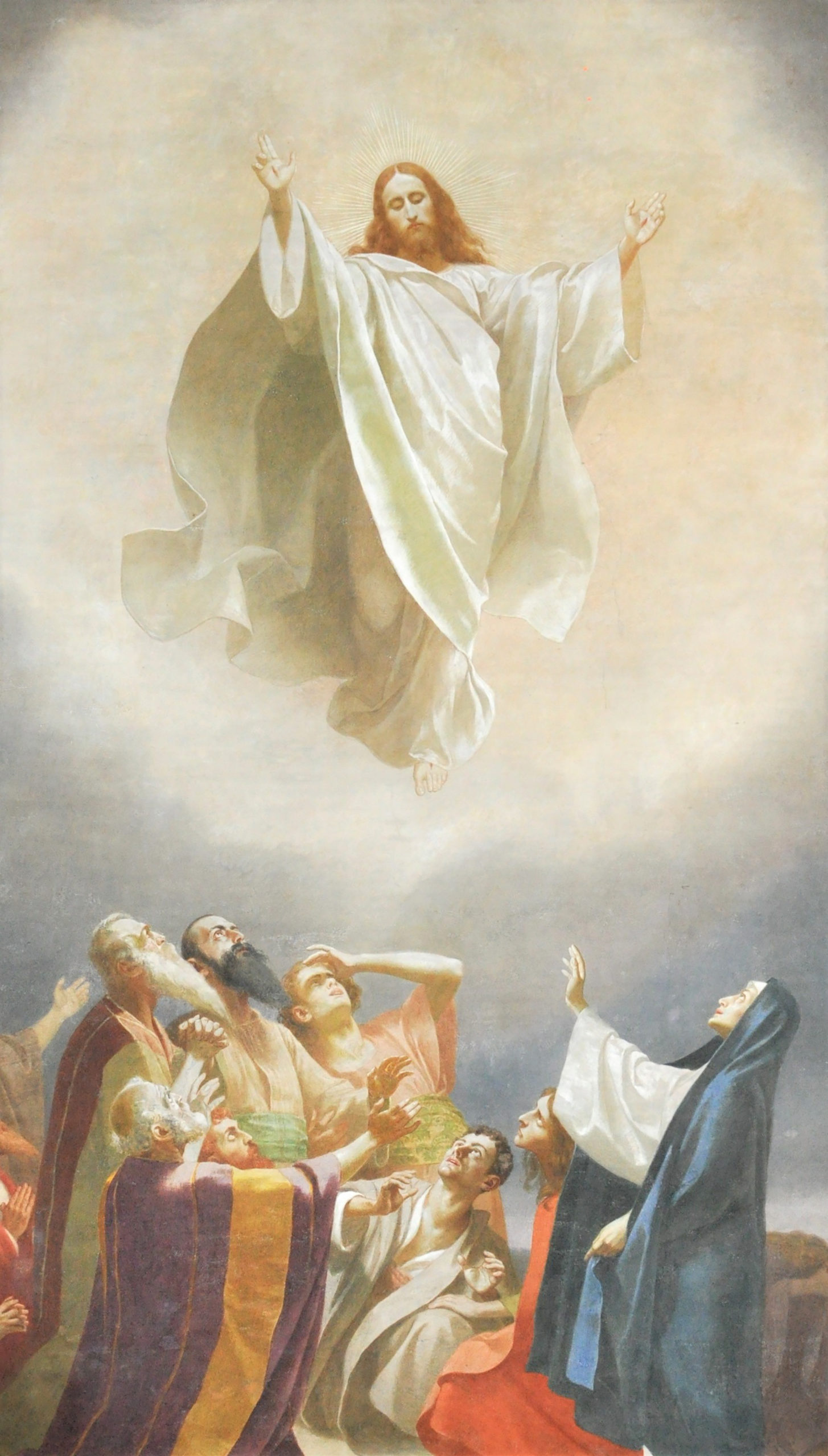By Ryan Reed
Correspondent

Theologian Carl F. H. Henry once quipped, “Our century has served theological skim milk to both churchmen and churchgoers; to the masses outside, non-milk, non-nutritious substitutes.” Nevertheless, Henry felt the winds of evangelical theological renewal.
This theological renewal, sowed by evangelicals of yesteryear, is now being reaped in our Baptist seminaries and churches — but theology for theology’s sake is never the end goal. We confess that God created humanity as more than brains on sticks.
We are not merely rational creatures; therefore, theology should never be merely academic. Instead, God intends theology to be a mercy that comforts his people in times of need. In my struggle with grief, the doctrine of the ascension has been particularly comforting.
A few months ago, I returned home from work one evening as usual. My two kids greeted Daddy at the door, and after hugging them and sorting some mail, I went to my office to return some books I had used that day. Something on my desk caught my attention: a bright pink positive pregnancy test.
My wife and I were ecstatic. We shared the good news with our children, who could not have been more excited. Knox, our five-year-old, was so excited that he surprised us all by announcing the news prematurely to our church a few weeks later! With the news out, we were full of joy with the gift the Lord had given us.
A couple weeks ago, our joy turned to fear. My wife woke up one morning with signs of a miscarriage. I, the eternal optimist, assured her that there was no cause for concern but to be safe, we would go to the hospital. After a brief examination, the doctor told us the news. “I’m afraid you’re experiencing a miscarriage,” the doctor said. Thus began our journey into grief.
Amid this heartache, I have found solace in the person and work of Jesus, particularly in his ascension. This may seem like a strange doctrine to cling to during a time of loss, but the implications of Christ’s ascension have been a balm to my weary soul.
The Heidelberg Catechism gives three advantages to Christ’s ascension. First, the ascension reminds believers that Christ “is our advocate in the presence of his Father in heaven.” As I wrestle with the pain of grief, I am reminded that I have an advocate before the Father in heaven.
God grants Job’s plea to every believer. Our Elder Brother goes in between and intercedes for us. He is the great High Priest who ushers us into the throne room of mercy. Not only does Christ advocate on my behalf, but I am confident that my unborn child has an advocate in heaven as well.
One of the most significant sources of my grief is that I could not father my unborn child in the ways that I can father my other children. I would have loved to comfort and encourage this child and be the trellis that allowed her to grow into maturity, but this would never be. Nevertheless, Christ’s ascension reminds me that his interceding love for my child is far greater than I can imagine. By his faithfulness, my child is safe in the arms of God.
Secondly, the Heidelberg Catechism states “that we have our flesh in heaven as a sure pledge that he, as the head, will also take up to himself, us, his members.” Christ’s ascension reminds us that he reigns forever as our conquering King. The God-man took upon himself human flesh, conquered death, and now reigns at God’s right hand.
This is good news indeed. It reminds me that death, that great enemy, is defeated. Christ’s human flesh in heaven acts as a pledge to believers that one day we too will live in the presence of our God. It’s a reminder that though my child cannot come back to me, I can go one day to her.
My federal head is in heaven, and one day he will call me to join Him. On that day, not only will I be able to dwell with my God, but I will meet my child. He has given me grace upon grace! It is as John Donne once wrote, Christ is the “strong ram, which hast battered heaven for me, Mild lamb, which with thy blood, hast marked the path; Bright torch, which shin’st, that I the way may see, Oh, with thine own blood quench thine own just wrath.”
The third advantage of the ascension that the catechism gives is in the ascension, Christ “sends us his Spirit as an earnest, by whose power we “seek the things which are above, where Christ sitteth on the right hand of God, and not things on earth.” It is this earnest, the Holy Spirit, that comforts my weary soul. It is the Holy Spirit that restores my heart and gives me hope. It is the Holy Spirit that lifts my head to things above.
Amid this time of grief, the Holy Spirit, the one who proceeds from both the Father and the Son — fully God — dwells within me. He is a constant reminder that the Trinitarian God (see section II, https://bfm.sbc.net/bfm2000/) is for me and with me. This doctrine of the ascension is the one that the Holy Spirit uses to tune my heart to sing the words of the old hymn:
“Who is this that comes in glory,
Trumpets sound with jubilee?
Lord of battles, God of armies,
He has gained the victory.
He who on the cross did suffer,
He who from the grave arose,
He has conquered sin and Satan,
He by death has beat his foes.
You have raised our human nature
On the clouds to God’s right hand;
There we’ll sit in heav’nly places,
There with you in glory stand.
Jesus reigns, adored by angels,
Man with God in on the throne;
Mighty Lord in your ascension
We by faith behold our own.”
Reed is senior pastor of First Church, Bruce. He may be contacted at ryantreed5@hotmail.com.








